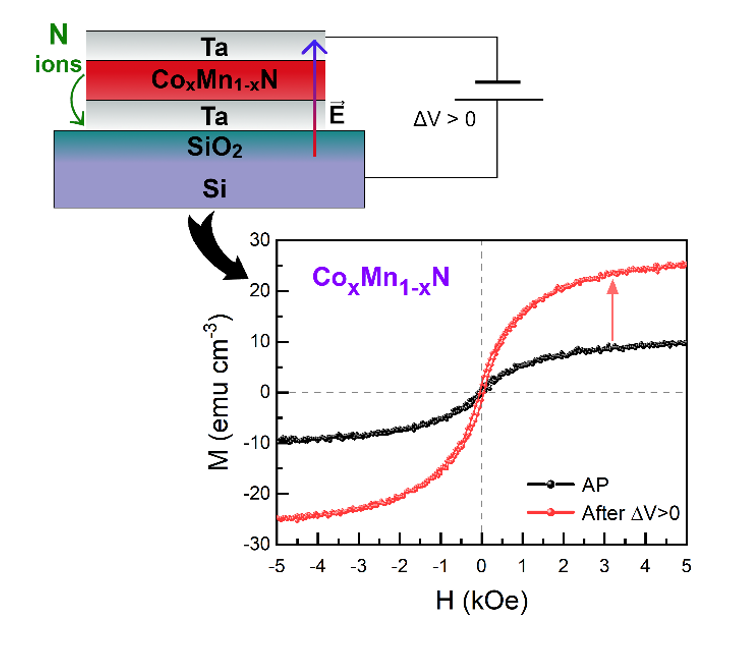Room-temperature solid-state nitrogen-based magneto-ionics demonstrated in CoMnN films
Posted in News Story
The increasing energy demand in information technologies requires novel low-power procedures to store and process data. Magnetic materials, central to these technologies, are usually controlled through magnetic fields or spin-polarized currents that are prone to the Joule heating effect. Magneto-ionics is a unique energy-efficient strategy to control magnetism that can induce large non-volatile modulation of magnetic functionalities through voltage-driven ionic motion. Recent studies have shown promising magneto-ionic effects using nitrogen ions. However, either liquid electrolytes or prior annealing procedures have been necessary to induce the desired N-ion motion. In a recent collaboration with Prof. Jordi Sort’s group at the Autonomous University of Barcelona (UAB) in Spain, Prof. Kai Liu and his students Christopher Jensen and Zhijie (Hugh) Chen have demonstrated voltage-triggered magneto-ionic effects at room temperature in solid state systems of CoMnN films, without the need of thermal annealing. Upon gating, a rearrangement of nitrogen ions in the layers is observed, leading to substantial changes in the magnetic properties of the films. These results offer promising avenues for the utilization of nitride compounds in energy-efficient spintronic and other memory devices. The work is recently published in Advanced Functional Materials.

